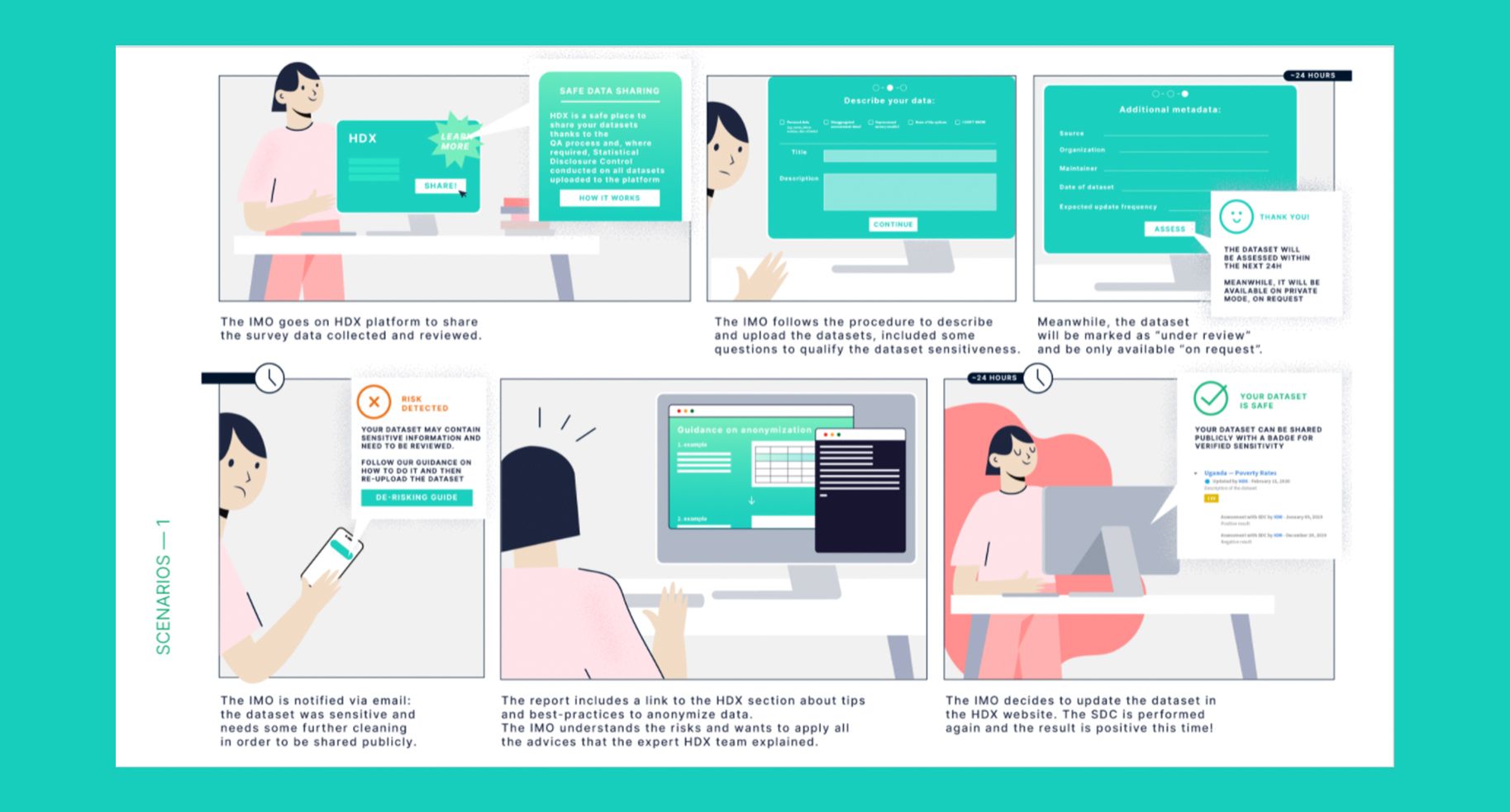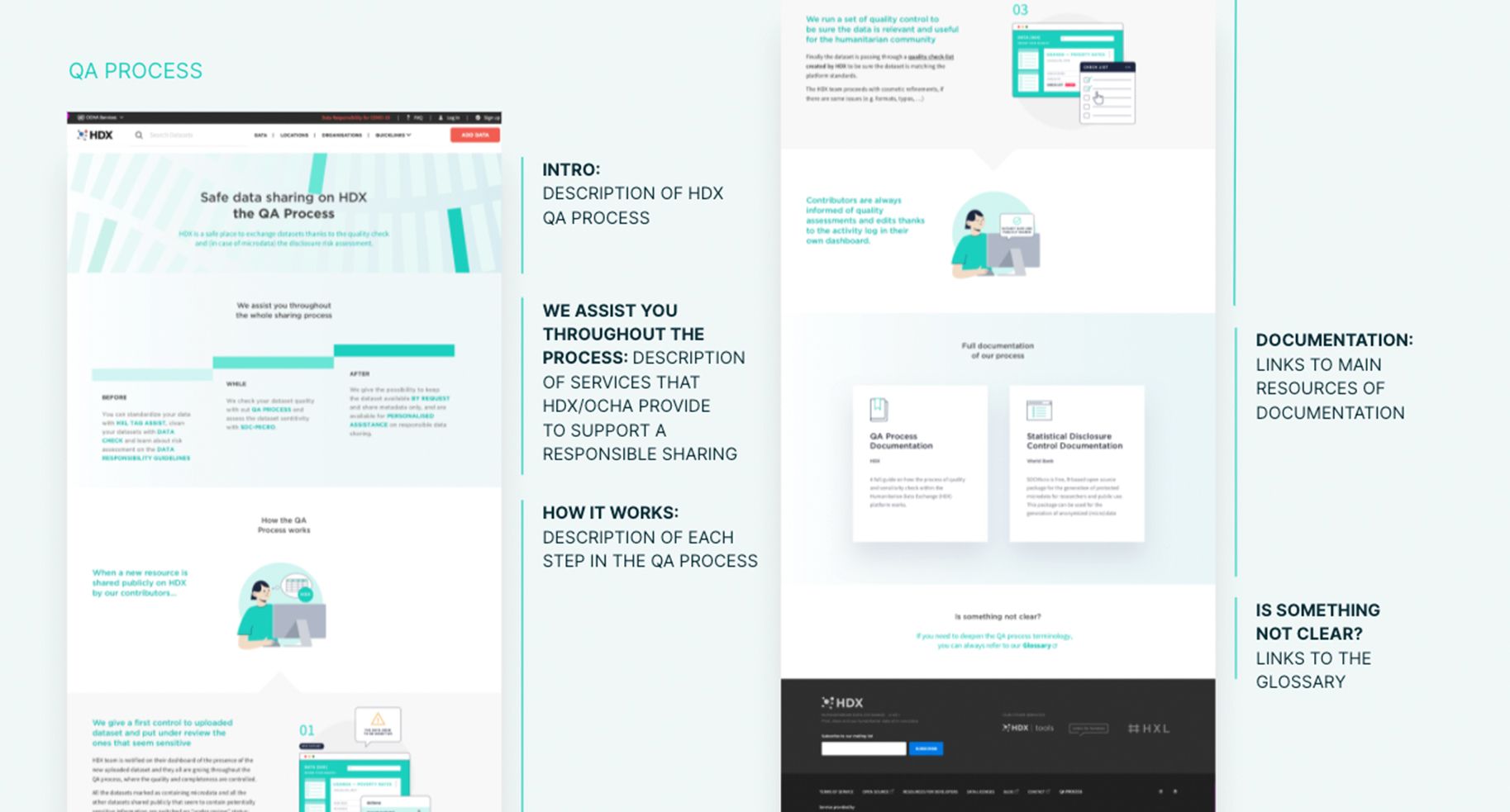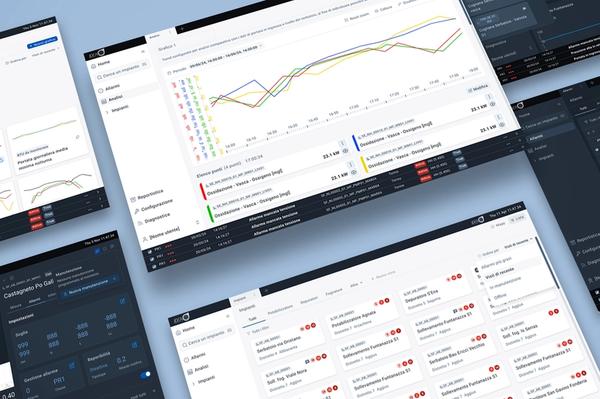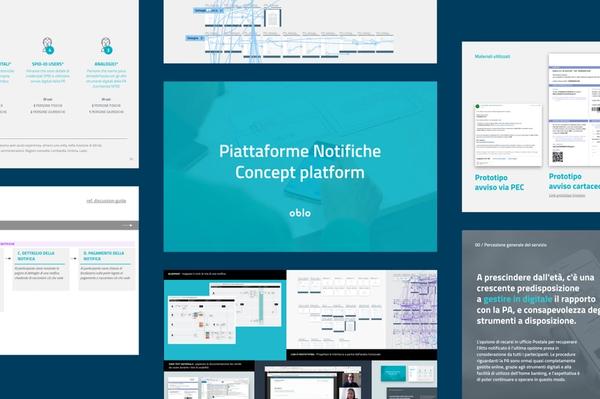Enhancing data responsibility in the humanitarian sector
Designing a safe sharing process for data management while spreading awareness on how to manage sensitive information
How can we minimize the risks of sensitive data circulating within organizations and uploaded to the HDX platform?
We developed a behaviour-change analytical framework and collected information interviewing the internal OCHA team as well as partner organizations, in order to define possibile future journeys of managing and derisking sensitive humanitarian data.
Design and development of the safe sharing process within HDX platform as well as of a framework for OCHA Data Responsibility learning offer.
Humanitarian organizations are collecting more data than ever before in order to be prepared for operational response in case of emergency.
In this context, the HDX platform plays an important role in enabling operative data sharing, by allowing organizations to upload their datasets in an open exchange with the broader community. But what happens when those datasets contain information that could lead to a reidentification of an individual or a group of individuals? Data responsibility involves understanding the harms that can come from collecting and processing data about affected people, and making informed decisions about using such data.

We started by mapping in detail the current data flow in humanitarian sector, from planning to gathering, processing and sharing, analyzing how it involves various actors and which risks are arising at each stage. We then conducted research with both internal OCHA and HDX team members as well as with humanitarian organisations, further elaborating the workflow and envisioning future scenarios that could encourage responsible data management (such as enabling humanitarians to easily apply Disclosure Risk assessment procedures to their datasets). The process led to a deep understanding of the central role of HDX in fostering a responsible sharing and to developing a service model that could help organizations understand the risks connected to their data, and embed responsible practices in their own workflows (with the help of the HDX experts).

The project generated several outcomes, in terms of new touchpoints and tools that have been included inside and outside the HDX experience. In particular, we designed the learning experience delivered by the Center for Humanitarian Data, to raise organizations' awareness and teach them how to apply Disclosure Risk Assessment (a statistical method to estimate the sensitivity of the data and intervene) in order to ensure a safe, ethical and effective use of data. In addition, we helped redefining the process of assessing sensitive data within the HDX platform, to make it more transparent for the contributors but also turn it into an educational moment related to data responsibility. All datasets get now assessed when uploaded to the platform and, if identified with high-risk, the HDX team gets in touch with the contributors to work together on reducing the level of sensitivity and share it safely.

